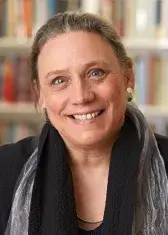
“Is higher education leadership possible?”
I write this message having just returned from the Academy’s Higher Education Forum in Aspen, where more than one hundred leaders from higher education, journalism, philanthropy, business, and the nonprofit sector gathered around this question at a time of unprecedented crisis. The institutions represented ranged from small liberal arts colleges to community colleges, to Ivies, to HBCUs, to large public research universities. Panel sessions at the Forum grappled with the question through various lenses, including political polarization, technology, career readiness, new financial models, governance, business partnerships, and American national security. We doubled down on the contributions higher education could and should make to America’s communities, economy, and role in the world.
The viewpoints in the room varied widely, and it was clear that hard work lay ahead. But when we asked ourselves at the end, “Is higher education leadership possible?” we did have an answer: It must be.
This conclusion aligns with the hundreds of conversations I have had with Academy members in person, online, or in writing during my first six months at the helm. Higher education is essential to American democracy, and the Academy should play a leading role in its defense. And so, the Academy will lead.
In April, the Academy collaborated with the American Association of Colleges and Universities (AAC&U) to quickly gather hundreds of higher education leaders for a series of virtual convenings to address the unprecedented challenges facing American colleges and universities. The result was a historic national statement, signed by more than 650 leaders of colleges, universities, and scholarly societies, that reaffirmed the values and freedoms of higher education and called for a future marked not by conflict but by constructive engagement. The full statement is included in the pages that follow, along with the April statement from the Academy’s Board of Directors, which I discussed in my spring message.
In addition to the Higher Education Forum and our collaboration on the national statement, the Academy is also providing leadership through its project work. The Academy’s Commission on Opportunities after High School convened its third meeting at the House of the Academy in April, focusing on helping students develop durable skills to adapt in an ever-changing economy; ensuring students are empowered to make the right choices for themselves; and aligning systems to address barriers. I was inspired to see bipartisan collaboration at work on improving America’s education system.
While helping to provide leadership in the higher education sector has been a clear focus during the past several months, in the pages that follow you will also see the Academy’s interdisciplinary distinction on full display. Our cover relates to the Academy’s work on Cultural Spaces and Their Communities, the subject of both a member event and an exploratory meeting held in Chicago earlier this spring, where leaders at museums, libraries, theaters, historical associations, and concert halls weighed in on the role of the arts and related fields in bridging America’s differences. A conversation with Dr. Anthony Fauci provides insights on a life led in medicine in service to the nation. An issue of Dædalus on “The Ethics of Social Research” explores how the complexities and inspirations of work in the Middle East provide grounding for key reflections. And a new report on Community Partnership Visas introduces a bipartisan approach to America’s immigration challenges.
The range of expertise demonstrated by this work is the Academy’s unique strength, and I hope you will consider how you could contribute to the life of the Academy, be it through membership nominations and elections, events, projects, publications, or financial support. And above all, I hope you will share your thoughts about how the Academy can continue to provide leadership in defending, supporting, and increasing knowledge in these most challenging of times.
Yours cordially,
Laurie L. Patton